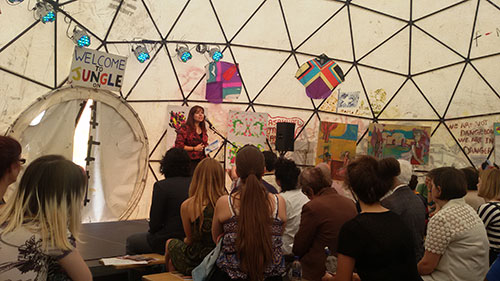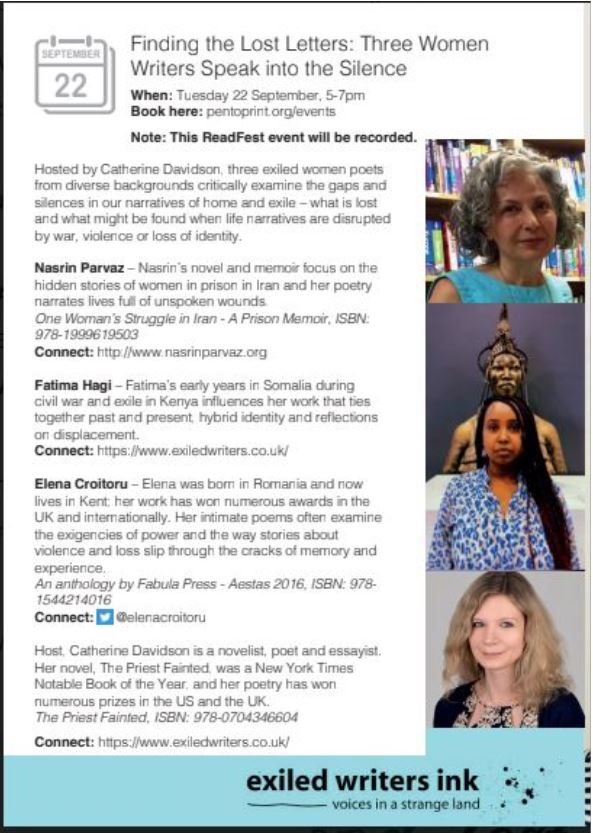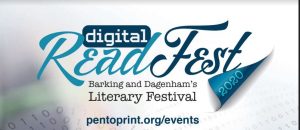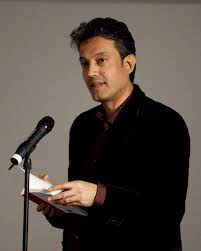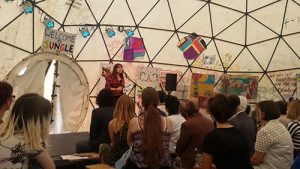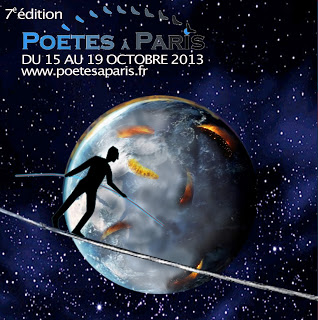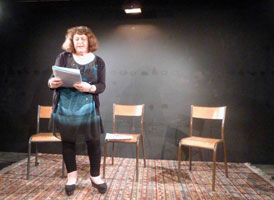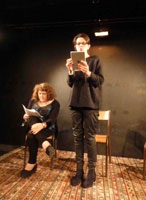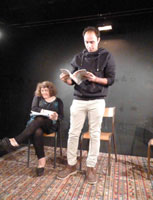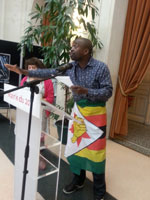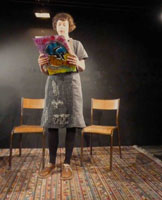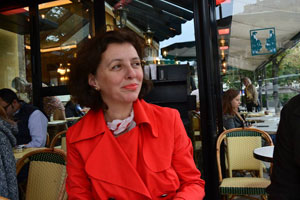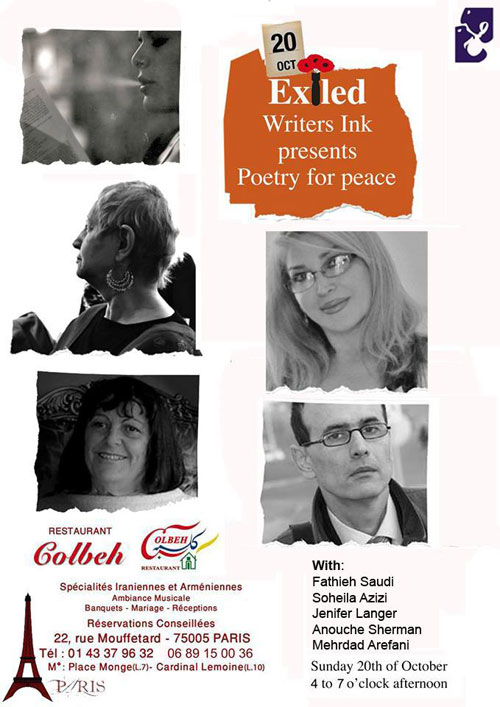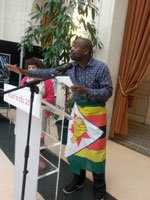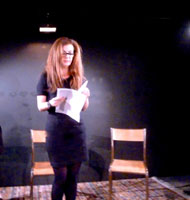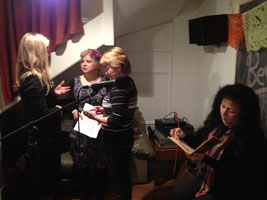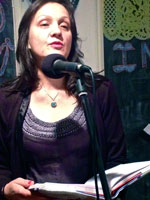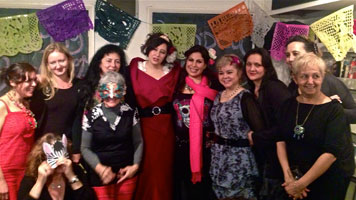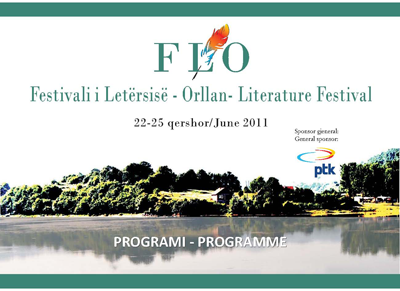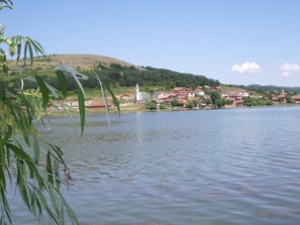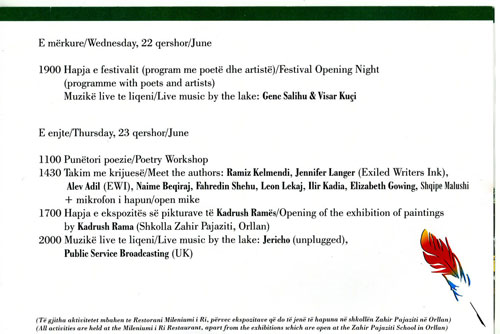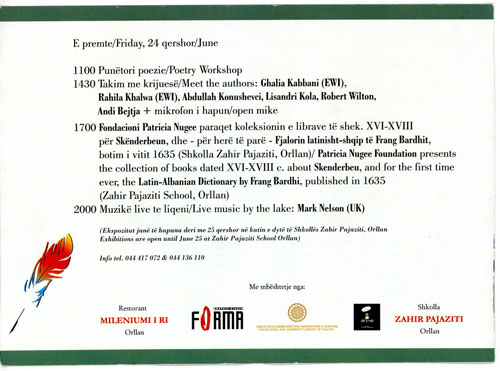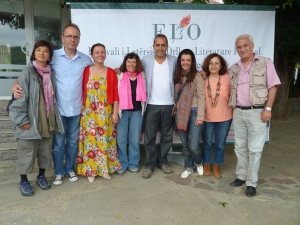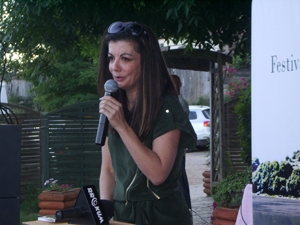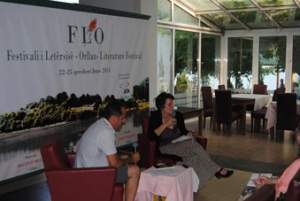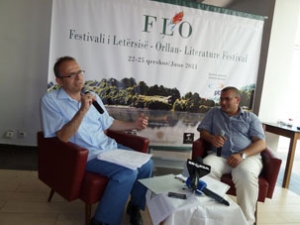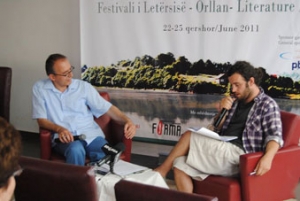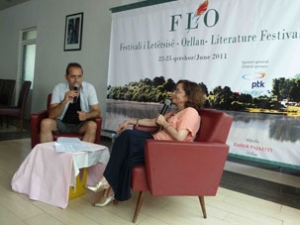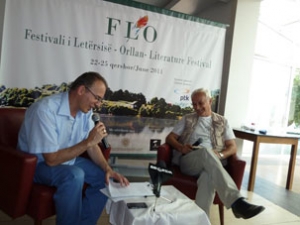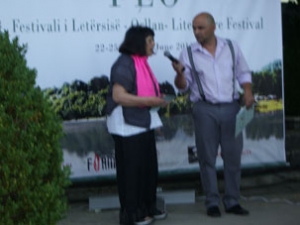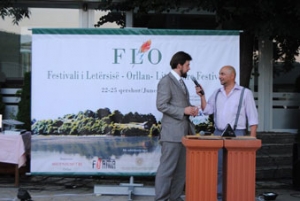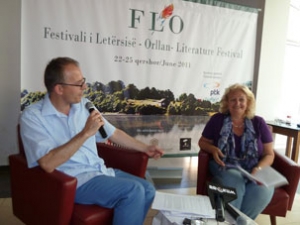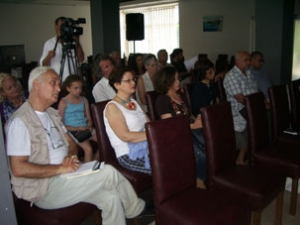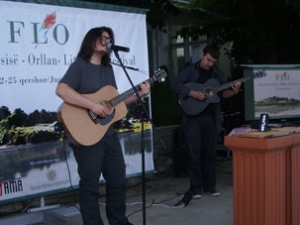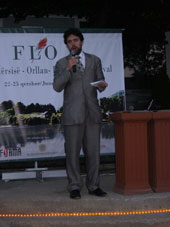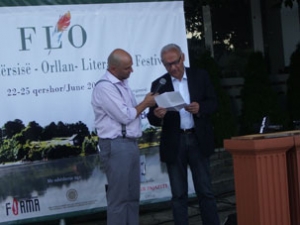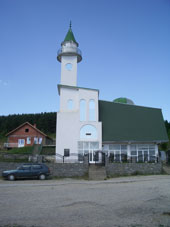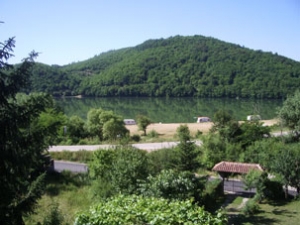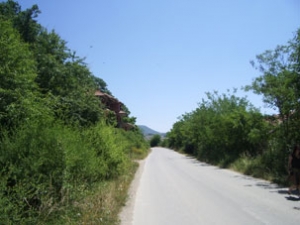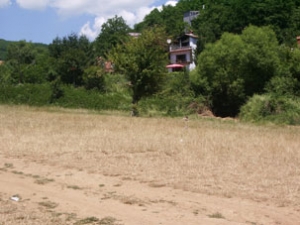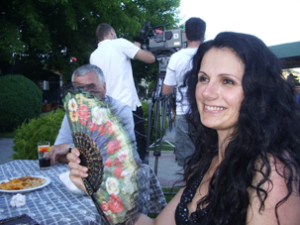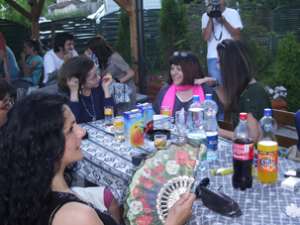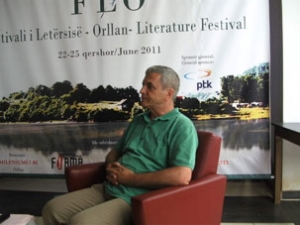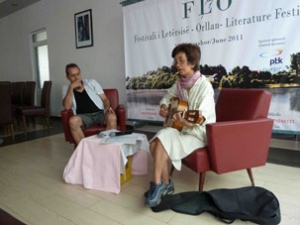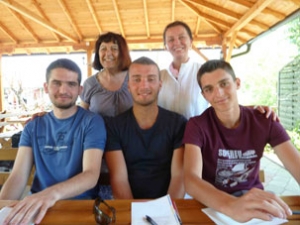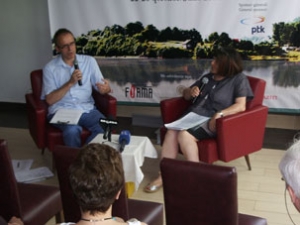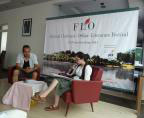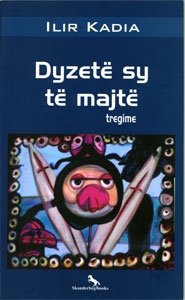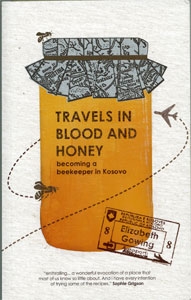Festivals
Exiled Writers Ink at the Cheltenham Poetry Festival
Saturday 9th April at 7 pm by Zoom
Cheltenham Poetry Festival
Cheltenham Poetry Festival (sponsored by Jordans Solicitors) brings international poetry home to you.
We offer an electrifying online programme of readings, workshops and performances which feature some of the most important and exciting artists in the world. We bring new voices into your living room. We’ll keep offering this inspiring programme to you until we’re able once again to provide events safely in the venues of Cheltenham.
If you would like to hone your work in a class, perform at an open mic, or sit back and enjoy a reading by one of our top-class writers and performers – we are here for you. For regular news of our events, please join our mailing list at cheltpoetryfest@gmail.com
Anna Saunders, Festival Founder and Executive Director Cheltenham Poetry Festival CIC No 07301718
Saturday 9th April at 7 pm by Zoom
The Mirror Speaks: In Search of Ourselves, poets from Exiled Writers Ink
Online
This thought-provoking event confronts the complex issue of identity, making comparisons between the sensibility of current refugees and that of a second generation daughter of German Jewish refugees.
Jennifer Langer, second generation poet, reads from her recently published poetry collection The Search and engages in discussion with current exiled poets: Amir Darwish from Syria, Parwan Fayyaz from Afghanistan and Alemu Tebeje Ayele from Ethiopia. Born of the history of loss, Jennifer snatches at fragments to create a narrative yet tensions arise from the diverse facets of her identity. How does an imagined family past contrast with the nostalgia and lived experience of current refugees? What is the role of second generation Postmemory and does the trauma experienced by refugees form their future identities? We will discuss all this and more.
Jennifer Langer’s recently published poetry collection is The Search (Victorina Press). She is founding director of Exiled Writers Ink www.exiledwriters.co.uk which develops and promotes the creative literary expression of refugees and migrants and advocates human rights through literary activism. Jennifer is editor of five anthologies of exiled literature the latest being Resistance: Voices of Exiled Writers (Palewell, 2021). She holds a doctorate in cultural memory and exiled literature and a SOAS Research Associate. Jennifer’s parents fled from Nazi Germany and were the sole survivors of their families.
PANEL MEMBERS
Amir Darwish
Amir Darwish is a British/Syrian poet of Kurdish origin. Born in Aleppo, he came to the UK as an asylum seeker in 2003. His collections of poetry are Don’t Forget the Couscous (Smokestack, 2015) and Dear Refugee (Smokestack, 2019) and his poetry has been widely translated. Amir holds advanced degrees in history, international relations, and creative and life writing. He is currently working on his doctorate in history.
Parwana Fayyaz
Parwana’s recently published poetry collection is Forty Names (Carcanet). She was born in Kabul, Afghanistan in 1990 and from the age of seven to sixteen, she was raised in Quetta, Pakistan. She later undertook undergraduate studies in Chittagong, Bangladesh subsequently transferring to Stanford University and gaining a B.A. in Comparative Literature and Creative Writing (Poetry). She moved to Cambridge University to pursue a PhD in Persian Studies at Trinity College in September of 2016 and took up a Research Fellowship as the Carmen Blacker Fellow at Peterhouse, Cambridge University in October 2020.
Alemu Tebeje Ayele
Alemu is an exile journalist, poet, lyric writer, community activist and website campaigner based in London. He studied Ethiopian Languages, Literature and Journalism at the universities of Addis Ababa and Wales respectively. He was also awarded a Diploma in Education and Training at the University of Westminster. His poems have been published in many anthologies such as Swirl of Worlds, Forever Spoken, No Serenity Here’, and online and print literary magazines. His poem Greetings to the people of Europe!’ was projected on public buildings in Denmark, Italy, USA and UK by Jenny Holzer in 2017 and his first bilingual collection of poems was published in 2018. He also recently co-translated and co-edited, with poet Chris Beckett, the very first anthology of Ethiopian poetry in English, entitled Songs We Learn from Trees: An Anthology of Ethiopian Amharic Poetry.[toggle/]
During the Covid19 lockdown, artist Rebwar Saeed, who returned from London exile to Kurdistan, and poet and academic Nazand Begikhani, from Kurdistan exiled in France, collaborated on a project called ReNaz: Corona and Women’s Bodies – an artistic synergy with visual art and poetry which aimed to raise awareness about domestic violence at times of Corona.
https://www.youtube.com/watch?v=pwhEWNau8kU
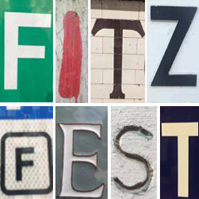
No Particular Place to Go: Poetry Unbound
Wednesday 7 June 6 pm – 8 pm
Free entry with donations
6 pm – 6.30 pm Live music with refreshments
6.30 pm – 8 pm Poets and discussion hosted by Edin Suljic, EWI Committee member and writer.
Amir Darwish is a British/Syrian poet of Kurdish origin. He was born in Aleppo in 1979 and came to the UK as an asylum seeker during the Second Gulf War. His poetry has been published in the USA, Pakistan, Finland, Morocco and Mexico and in the anthology Break-Out. His collection of poetry is Don’t Forget the Couscous (Smokestack, 2015). He has an MA in International Studies (Middle East) from the University of Durham and a BA (Hons) History, Teesside University.
Shireen Razavian is a Tehran-born British poet whose work has appeared in Poetry London, Index on Censorship, Exiled Ink Magazine, Agenda and Persian Book Review among others. She has published 5 Farsi and English poetry collections in the UK, the latest of which was Which Shade of Blue featuring original works and translations of her work by the poet and translator of Russian literature, Robert Chandler.
Fiona Sze-Lorrain writes and translates in English, French, and Chinese. She is the author of three books of poetry, most recently The Ruined Elegance (Princeton, 2016), a finalist for the Los Angeles Times Book Prize. She is also a zheng harpist and a widely published translator of contemporary Chinese, French, and American poets. Her translation of Yi Lu’s Sea Summit (Milkweed, 2016) was shortlisted for the 2016 Best Translated Book Award. She lives in Paris.
Fitzrovia Centre, 2 Foley Street, London W1W 6DL
Poets in Exile
A morning of recitals and discourse with poets putting pen to paper in exiled lands.
Featuring Fatemeh Shams, Ghareeb Iskandar, Nazand Begikhani
Nazand Begikhani

British of Kurdish origin, Nazand Begikhani is a poet of international renown and currently works as Senior Research Fellow at the University of Bristol. She has published seven poetry collections in English, Kurdish and French. She published Bells of Speech (Ambit) in 2006 and one of her poems from the collection, An Ordinary Day, was selected by Forward Poetry Prize as one of the best 40 poems of the year in the UK. She won France’s Prix de la Poésie Féminine Simone Landry in 2012. She is currently finalising her second poetry collection in English. Nazand Begikhani has over 20 years’ experience in writing, research, advocacy for human rights and consultancy. Her academic writings focus mainly on gender, ethnicity and violence against women. Her last academic (co-authored) book titled Honour-based violence: Experiences and Counter-Strategies in Iraqi Kurdistan and the UK Kurdish Diaspora (London: Ashgate) came out in 2015.
Ghareeb Iskander was born in Baghdad. He studied Arabic literature at the University of Baghdad and currently doing a Ph.D. in poetry translation at the University of London (SOAS). He published ten books including A Chariot of Illusion (Exiled Writers Ink, London 2009); Gilgamesh’s Snake (Beirut 2012); Translating Sayyab into English (London 2013); Gilgamesh’s Snake and Other Poems, a bilingual collection, which won Arkansas University’s Arabic Translation Award for 2015, published by Syracuse University Press (New York, 2016). Some of his poems appear in The Keystone Anthologies (Dempsey & Windle, Guilford, 2014, 2015). He has taken part in Erbil, Reel, Edinburgh, Wigtown, Bath, Niniti, Poetry International, Shubbak and Iskele festivals. Ghareeb was the featured writer of
Scottish Pen 2014.
Fatemeh Shams
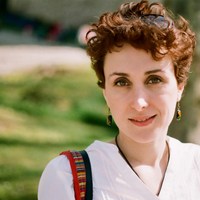
From Mashhad, Iran, Fatemeh Shams won the silver medal in the Iranian national Literature Olympiad in 2000. After graduating in sociology from Tehran University, Fatemeh pursued post-graduate studies in London and Oxford where she taught Persian language and literature. In the 2009 post-election turmoil, Fatemeh and her family were targeted by the state for supporting the Green movement. Fatemeh was then forced into exile. She won the Jaleh Esfahani poetry award for the best young Persian poet in 2012. Her first book of poetry was published in 2013 under the title of ’88’. She holds a doctorate in Persian poetry and is currently a Visiting Teaching Fellow at SOAS and at the Courtauld Institute, University of London. Her poetry collection in English is entitled When They Broke Down The Door (Mage, 2016).
Discussant: Jennifer Langer, editor of four anthologies of exiled literature, she holds a PhD in the literature of exile and is founding director of Exiled Writers Ink www.exiledwriters.co.uk
Saturday 5 November 2016, 11.30am-1.30pm
Kensington Central Library Phillimore Walk, London W8 7RX Tel: 0207 3613010
Registration: 11am
Voices of Jewish and Muslim Writers
Presented in association with Exiled Writers Ink
Wednesday 9 November 2016, 6 – 7.30pm
Mercure Hotel – The George Suite, 2 George Street
Nottingham, NG1 3BP
Both Muslims and Jews find themselves on the front line facing fear and hostility. Four poets read from their work, defining ‘the self’ and resisting prevalent stereotypes to give an insight into the complexity of identity.
Michael Mehrdad Zand Ahanchian is a writer, editor and researcher. He was born in Iran, but has spent most of his life in the UK, where he has taught poetry and creative writing in London, Oxford and Reading. His collections include Kval (Arthur Shilling, 2009) and Lion: The Iran Poems (Shearsman, 2010), The Wire and Other Poems (Shearsman, 2012), Little Rubies (Three Rivers, 2013) and The Messier Objects (Shearsman, 2015). He was included in the Best Poetry of 2011 anthology (Salt, 2011) and won the Roehampton Poetry Performance Prize in 2008.

Shamim Azad is a bilingual author and one of the best known Bengali poets in England. She has published more than 30 books including novels, short stories and collections of poetry in English and Bengali. Her poems and translations have been published widely in magazines and anthologies.

Yvonne Green who lives in Hendon and Herzilia was born in London in 1957. Her first collection “Boukhara” won the 2007 Poetry Business Book and Pamphlet Competition. Her second collection, “The Assay” won translation funds from Lord Gavron and Celia Atkin was published in Hebrew by Am Oved at “Hanisu Yi”. Her third collection, “After Semyon Izrailevich Lipkin” was the Poetry Book Society’s Translation Choice for Winter in 2011. Her latest collection, “Honoured” was Poetry Book Society Recommended in 2015.

Amir Darwish is a British/Syrian poet of Kurdish origin. He was born in Aleppo and came to the UK as an asylum seeker during the Second Gulf War. His poetry has been published in the USA, Pakistan, Finland, Morocco and Mexico. His collection, Don’t Forget the Couscous, was published by Smokestack in 2015.

Discussant: Dr Jennifer Langer
Exiled Writers Ink runs ‘Across the Divide’, a programme aiming to bring together Muslims, Jews,
Palestinians, and Arabs in a process of exploring ‘the other’ in the face of the intractable Middle East situation and its effect on UK communities. www.exiledwriters.co.uk
Poetry from Exiled Writers Ink
Good Chance presents their series Encampment as a space of welcome and expression, housing a daily programme of theatre, art, music, discussion and workshops, with special guests and performances.
Encampment reinvigorates the dialogue on one of the biggest human migrations in history and encourages the celebration of our diversity and humanity.
Hear five poets from a network of refugee, migrant and exiled writers.
Exiled Writers Ink promotes cross-cultural dialogue through performance, publishing and education, and advocates human rights through literary expression and activism.
Our five poets this evening are Nineb Lamassu, of Assyrian Iraqi roots, who writes his poetry in modern Assyrian; Shirin Razavian, a Tehran-born British poet who has published five Farsi and English poetry collections in the UK; and Suhrab Sirat, a poet, writer and journalist who was born in Afghanistan’s Balkh Province and moved to the UK in 2014; Shie Raouf Kurdish Iraqi poet who currently performs throughout London; Hussam Eddin Mohammad is a Syrian born journalist with a long career of reporting and creative writing.
Exiled Writers Ink visited the Calais refugee camp in October 2015. Spoken-word poets from Syria, Afghanistan, Eritrea and Somalia performed poetry in workshops, leading to the creation of a collaborative poem.
The response to this process showed how powerfully poetry can help to sustain people through desperate emotional and physical circumstances.
Good Chance Dome at Festival Terrace
5 August 2016, 18:00pm – 19:00pm
http://www.southbankcentre.co.uk/whatson/poetry-from-exiled-writers-ink-1001717
Exiled Writers Ink presented poets and ran workshops as part of the Limmud Fest in the Kent countryside in August 2012 and Limmud in the Woods festival in the Oxfordshire countryside near Banbury in August 2013. Edin Suljic, Mehrangiz Rassapour and Jennifer Langer ran the workshop entitled Conflict and Conciliation in the Old Barn in Kent while Sofia Buchuck, Handsen Chikowore, and Alev Adil ran Café without Borders. The session in a marquee was entitled Journey into Memory with Jennifer Langer, Alev Adil, Handsen Chikowore and Sofia Buchuck. It was very well attended and the participants were extremely enthusiastic and created a collaborative poem on memory.
21 June 2011 – 25 June 2011
Exiled Writers Ink poets and writers involved in the Kosova Cultural Festival were:
Alev Adil, Ghalia Kabbani, Rahila Khalwa and Jennifer Langer
www.memorymap.org.uk by Alev Adil
The Literature and Cultural Festival was organised by Valbona and Ragip Luta.
Abdullah Konushevci
Blues for my dead friends
I will get drunk
I will get as drunk as a lord
With my old friends
Mirko Mark Gashi
Will put me in his right arm
Hajdar Salihu will be in my left arm
We will drink
For the first time
In silence undisturbed by the living
We will drink so much
That I will make them forget they have died
I will lie that the freedom came
That neither do spies spy
Nor do they harass poets
So that the graves do not remain empty
I will fill them with one of my halves
Which I will steal from my dead self
If they miss me
Let them call me again
To strike out as we once did
Glasses one after another
Well, to be honest
It’s quite boring without them
Translated from the Albanian by Vlora Konushevci Llozana
Malli për miqtë e vdekur
Do të dehem
Do të dehem e të bëhem tapë
Me miqtë e mi të vjetër
Mirko Mark Gashi
Do të më vërë në krah të djathtë
Hajdar Salihun do ta kem në krah të majtë
Do të pimë
Për herë të parë
Në një qetësi të patrazuar nga të gjallët
Do të pimë aq shumë
Sa do t’i bëj të harrojnë që kanë vdekur
Do t’i rrej se erdhi liria
Se spiunët më as përgjojnë
As shitojnë poetët
Që të mos mbesin varret të zbrazëta
Do t’i mbush me nga një gjysmë timen
Të cilën do ta vjedh nga vetja ime e vdekur
Po i mori malli për mua
Le të më thërrasin përsëri
Të shpikim si dikur
Gotat një pas një
Paj, me folë nga del shpirti
Nuk po rrihet pa ta
Abdullah Konushevci was born in 1958 in Prishtina, Kosova and is one of the most eminent Albanian poets. He completed his primary and secondary education in Prishtina, and studied Albanian Language and Literature in Prishtina University. He continued his studies for master’s degree “Comparative Literature” in University of Zagreb, and worked for more than 20 years as a journalist for Kosova’s daily newspapers “Bota e Re” and “Rilindja”. He is noted not only as a leading Kosova poet, but also for his essays and writings on Albanian literature and on the Albanian language.
Konushevci is an author of six volumes of intense verse: Pasqyrë dhe diell (Mirror and Sun), Prishtina 1979; Rënia e molles (The Fall of the Apple), Prishtina 1981; Qerrja e diellit (The Sun’s Carriage), Prishtina 1983; Loja e strucit (The Game of the Ostrich), Prishtina 1987); Të qenët të mosqenë (The Unbeen Beings), Prishtina 1990; and most recently Pikat AD (The Drops AD), Prishtina 2002, with its startling reflections on the 1999 war in Kosova. Konushvci has also prepared the text book “Albanian Language” (School Book “Dukagjini” for High Schools in 2004 and 2009). He is the author of the following works on literary criticism:
Demaçi, vepra letrare (literary works – monograph , “Nositi”, Prishtina, 2008)
Për poezinë (For Poetry Literary Criticism, “Nositi”, Prishtina, 2008)
Father Gjergj Fishta 1871-1940 (monograph, prepared for printing by Abdullah Konushevci), NOSITI, Prishtina, 2011)
Novel ‘Gjarpinjtë e gjakut’ (Snakes of Blood) by Adem Demaçi (selected literary articles from Abdullah Konushevci, literary criticism), NOSITI, Prishtina 2011)
Abdullah Konushevci has translated from the English Language into Albanian the following:
Rabindranath Tagore: Gitanjali and Fruit Gathering (“Rilindja”, 1988);
Ernest Hemingway: The Sun Also Rises (“Rilindja”, 1989);
Icon of tears (documentary film” (2006);
Ludo Hupperts: Concert and other stories, PH “Nositi”, Prishtinë, 2008.
Translations from Croatian into Albanian language:
Teofrast: Characters (“Rilindja”, 1983),
M. Slaviçek: Why not be while we are (“Rilindja”, 1990),
Group of authors: History of World’s Literature, V (“Rilindja”, 1989) dhe
Milan Shufflay: The history of northern Albanians (“Nositi”, 2009)
Konushevci for more than 20 years has published hundreds of articles and literary reviews on written and oral (spoken) literature and on the Albanian language. He has prepared for print a considerable number of literary works and literary magazines. A great number of his poems have been translated into English, Spanish, German, Rumanian, Slovenian, Croatian, Slovakian and Turkish language. About Konushevci’s literary works have written Sylejman Syla, Xhemail Mustafa, Ibrahim Rugova, Vehap Shita, Hysni Hoxha, Ali Aliu, Abdyl Kadolli, Merxhan Avdyli, Sabri Hamiti, Ramadan Musliu, Rushit Ramabaja, Milazim Krasniqi, Ismail Belaj, Ismail Syla, Salih Bytyçi, Emin Azemi, Nazif Zejnullahu, Medi Memishi, Rrustem Geci etc.
Taken from “http://sq.wikipedia.org/wiki/Abdullah_Konushevci”
Ervina Halili
Sweet Death Lamented in Cello
The walls of her room are music
Swans death lamented in cello
Soul breeze is outside
Head disease under woolen hats
Grandma, grandma
Why do you have such big eyes
I daydream a lot my sweet little child
I daydream a lot
The ceiling of her room is sea
Soul raining is pouring outside
Misery mushrooms under the bared feet
Grandma, grandma why is your mouth so big
To swallow the pain my sweet little child
To swallow the pain
In her room the bed has a fever
Outside the black sheep get puffed
Grandma, grandma
Why don’t you ever ask me about my sound sleep
Because I am sleepy my sweet little child
We are all sleepy
Sleep
Don’t Blame Me
Don’t blame me my man
That in smoky apparitions of our town
Crows escape headless in eternity of evening
And I’m not there
To applaud the rite of escaping
But I have my escape and
I have my escape
My man
Don’t blame me that my darkness abandoned me
Without making love with awakened dreams
As with hands behind back
Are cursing the sidewalks
And call their loneliness in skewed paradise
Because I have my sleeping dreams
I have sleeping dreams
Don’t blame me man
For shedding tears as a child who has lost his mother
And eaves that swing painfully in the wind
I come as a sleepwalker from postwar iron being
From neon of corridors infected with human insanity
But I have my peace
I have my peace
My man
Don’t blame me for not sleeping at home at nights when it thunders
For coming back with different clothes and different hairdo
And I find you bored while whistling the expectance
I come from blue buses returning from a prayer
For fathers who weep over their raped children
For butterflies that have died choking
But I have myself
I have myself
Ervina Halili is currently a Literature student in Prishtina. She will be taking up a poetry residency in Vienna in autumn 2011.
Live Literature – Discussion – Refreshments – Music
Thursday 30th June at 7 pm
Stanhope House, 2-4 Stanhope Place, London W2 (Marble Arch station) £5 and £3 EWI members
Neither Here nor There
or What to Tick on those Ethnic Monitoring Forms?
Maggie Harris
Maggie Harris is a Guyanese poet living in Kent. Her first collection, Limbolands won the Guyana Prize for Literature 2000.
Mimi Khalvati
Poetry collections include In White Ink (1991), Mirrorwork (1995) and Entries on Light (1997). Selected Poems was published in 2000 and The Chine in 2002.
Kapka Kassabova
Poetry collections: Someone Else’s Life, Dismemberment, All Roads lead to the Sea and novels including Love in the land of Midas and Reconaissance
Adrianna Diaz Encisco
Poetry collections: Sombra abierta, Pronunciación del deseo, Hacia la luz and novels: La sed and Puente del cielo
Champa Shah and dancers
Chaired by Nathalie Teitler of EWI & Refugee Action

